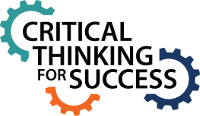Understanding Cognitive Development Is Key to Making Changes for a Better Future
We all want to see a brighter future, but what is the right path? It can be hard to grow and change when you don’t know where to start or how to follow through.
This guide lays out the basics of cognitive development. The way ahead, but also the challenges, are covered.
Cognitive development describes how we develop our thinking and reasoning skills. Problem-solving, learning, remembering, and decision-making all play a role.
Take Stock of Your Goals
To get started, think about what you want in life. We envision our lives getting better over time. Do you see yourself as a better person than you were in the past? This is a common feeling. You have more accumulated experience and knowledge, for instance.
Real growth doesn’t just happen over time all by itself, however. Personal growth may help you succeed in one or more of these goals:
- Playing a sport better
- Getting a promotion at work
- Becoming a better spouse or parent
Each person’s cognitive development is different. In some cases, a weakness in your cognitive development can hold you back. Critical Thinking for Success is a Chicago-based cognitive therapy clinic that helps people overcome problems.

Fear Is a Natural Response
Fear is a common factor keeping people from reaching their potential. Understanding the role of fear in human thinking can help you improve your cognitive development.
Your brain has one primary goal: to keep you alive. It is loaded with all sorts of survival mechanisms. These survival skills have also been adapted over thousands of years of evolution.
Fear is one of the main ways your brain helps you survive. In fact, fear is your brain’s way of telling you to be cautious. It’s telling you, “Hey! That thing might be dangerous. Stay away from it so we can be safe!”
Creating Familiarity
Familiarity is one factor in whether your brain decides to warn you about something. The brain has no ready response if something is unknown. As a result, it defaults to caution. Your reaction? Discomfort or anxiety, which are milder versions of fear.
Fear explains why trying new things may make you uneasy. It’s also why change is so hard. To change, you must ignore your brain’s responses. The problem? That puts you in new territory.
How do you combat this? Make the unfamiliar familiar. This sets your brain at ease. There are two major ways to go about that.

Planning Things Out
Your first strategy is to plan out the change you wish to see. In other words, run through the process in your head in advance.
Let your brain “experience” what will probably happen ahead of time. In this case, your imagination becomes your personal staging area. You can practice dealing with challenges before you actually encounter them.
Once you’ve experienced something in your head, your reaction changes. Your brain now has a clear neural pathway to take, so it won’t default to caution. In other words, you aren’t “psyched out” by your brain’s natural responses.
You’ll get good at planning and visualizing the change you wish to see. As a result, your brain will grow familiar with the change, then let you take your foot off the brake.
Building a Support Network
Getting support is the second key strategy to tamp down the fear response. The unfamiliar seems more familiar when others are around, of course. Support from people you trust helps you achieve growth and change without anxiety.
Simple actions, such as asking for advice or help, can make a difference. Even hearing words of encouragement can anchor you in a tough time.
Your support system can be made up of anyone whose support is reassuring, such as:
- Friends
- Family
- Peers
- Teachers
Professional help can also be a valuable source of support.
We Can Enhance Your Cognitive Development
Critical Thinking for Success offers one-on-one cognitive training and therapy. We will teach you more about your own cognitive development as you develop new skills and strategies. You’ll get help visualizing and planning your future. We’re also here to help you build your support system.
We have offices in Chicago and Deerfield, Ill. Give us a call at 312-291-9679 for the Chicago office or 847-845-0422 for the Deerfield office to schedule a consultation. Find out how we can help you grow and change!
Editor’s note: This blog was originally published on June 5, 2017







